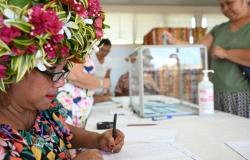This election, organized urgently after the death of President Ebrahim Raïssi, must be held on June 28.
Just over a month after the death of Iranian President Ebrahim Raisi in a helicopter crash on May 19, Iran is now turning its attention to the presidential election on Friday, June 28, in which the conservative camp would like to see the election of a candidate loyal to the supreme leader, Ayatollah Ali Khamenei.
Against a backdrop of war in Gaza and concerns about the Iranian nuclear program, and while Tehran is a major player in the Middle East, this election with multiple issues is closely scrutinized on the international scene, while the Iranian population shuns the ballot boxes . - tells you the essentials of what you need to know before the vote.
An election organized urgently
First scheduled for spring 2025, the election had to be organized urgently, in order to replace the previous elected president, Ebrahim Raïssi, who died at the age of 63 in a helicopter accident. After a funeral declared a public holiday and a five-day mourning period, Supreme Leader Ali Khamenei, the Islamic Republic’s highest authority, tasked interim President Mohammad Mokhber with organizing the presidential election.
The Iranian Constitution provides that the election of a new president must take place within 50 days following the death of his predecessor, which leaves only a short period to organize the elections, and allow candidates to s announce and campaign.
Four candidates in the running, almost all conservatives
Six candidates, mostly conservatives, were allowed to run in the June 28 presidential election. They were selected by the Guardian Council, an unelected body dominated by conservatives and tasked with overseeing the electoral process, from among 80 candidates who filed. Two of them, however, withdrew from the presidential race: Tehran Mayor Alireza Zakani and the ultraconservative head of the Martyrs’ Foundation, Amir Hossein Ghazizadeh Hashemi. Both candidates were far behind in the polls.
Among those still in the running are Mohammad Bagher Ghalibaf, Speaker of Parliament, Saïd Jalili, the former nuclear negotiator, Mostafa Pourmohammadi, former Minister of the Interior, and finally Masoud Pezeshkian, deputy of the city of Tabriz, former minister of Health and the only candidate presented as a reformer. According to a poll by the Ispa institute, the three favorites are Saïd Jalili, Mohammad-Bagher Ghalibaf and Masoud Pezeshkian.
The Council disqualified former President Mahmoud Ahmadinejad, who at 67 wanted to return to the post he held from 2005 to 2013. He had already been rejected in the 2017 and 2021 presidential elections. Another veteran of the Islamic Republic, Ali Larijani, a former speaker of parliament considered a moderate, was also rejected, as he was in 2021. Four women also filed an application this year, but none of them qualified. The Guardian Council has not publicly justified its choices.
Issues on Western sanctions, nuclear power, inflation
This election is being held while Western countries, led by the United States, continue to strengthen their sanctions regimes against Tehran by calling into question the continuation of its nuclear program, its support for Hamas in the war against Israel and Russia. opposed to Ukraine or “violations” of human rights. A supporter of firmness towards the West, Ayatollah Khamenei called on the six candidates to avoid any declaration that would be likely to “to please the enemy”.
One of the three favorites, Said Jalili, a former ultraconservative nuclear negotiator, argued for the continuation of this anti-Western policy, declaring that “the international community did not consist of two or three countries” Western countries. For him, Iran must on the contrary strengthen its ties with China on the economic level, with Russia in the field of defense, but also with the Arab countries, the Saudi rival at the head.
More pragmatic, conservative candidate Mohammad Bagher Ghalibaf believes that Iran should only negotiate with Western countries if it has “an economic advantage” to withdraw from it, in particular by lifting sanctions. The current President of Parliament also calls for continuing to increase the country’s nuclear capabilities, a strategy that is bearing fruit in “forcing the West to negotiate with Iran”.
On the other hand, the reformer Masoud Pezeshkian promotes the establishment of “relations constructives” with Washington (United States) and European capitals in order to “bring Iran out of its isolation”. “If we could lift the sanctions, Iranians could live comfortably”Masoud Pezeshkian summarized. The 85 million inhabitants are facing very high inflation, of the order of 40%, high unemployment and the record depreciation of the rial, the national currency, against the dollar.
The sensitive issue of the compulsory wearing of the veil by women is also part of the issues of this campaign. When questioned on the subject, most candidates adopted a cautious stance, declaring themselves opposed to moral policing and the use of violence against women who do not wear veils.
Record abstention expected
In the previous presidential election in 2021, 51% of Iranian voters abstained, a record rate since the Islamic Revolution of 1979. According to Amélie Chelly, a sociologist specializing in Iran and researcher at the Sorbonne Nouvelle (Erti), the abstention rate in this new election is expected to be at least as high. “Young Iranians will not travel”estimates the sociologist, because “no candidate meets their expectations”.
“All these candidates are committed to the ideology of the supreme leader. Even Masoud Pezeshkian, who is presented as a reformist, is not so different from the conservatives”explains Amélie Chelly. Whoever he is, the next president will indeed have limited room for maneuver, because the national strategy is set by Ayatollah Ali Khamenei, at the head of the Islamic Republic for thirty-five years, who called on voters to mobilize on Tuesday. “We stress the importance of high participation [aux élections] because it is the pride of the Islamic Republicthe Supreme Leader said in a televised speech three days before the election. Every time the people’s turnout in elections was low, the enemies of the Islamic Republic blamed us.”
Ayatollah Ali Khamenei’s potential successor
While the president has little power, this position is nevertheless a strategic one in order to claim the succession of the Supreme Guide. Before the death of Ebrahim Raisi,“It was a certainty that he would take over”explains Amélie Chelly. But now, the cards are being reshuffled.
Elected for four years, the candidate who wins the presidential election on June 28 could indeed be called upon to succeed Ayatollah Ali Khamenei. Aged 85 and suffering from prostate cancer for almost ten years, the question of his succession could arise in the years to come.






